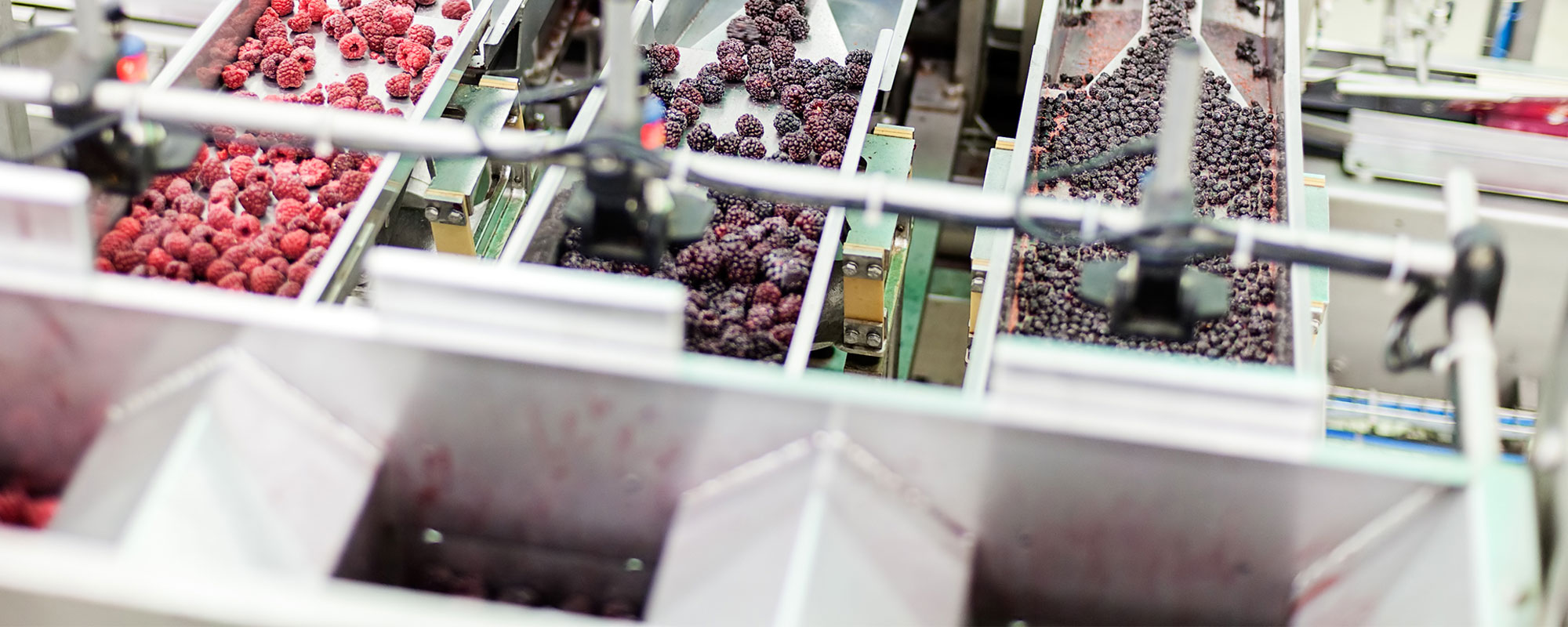Responsibility
Feeding the World Safely
Around the world, demand for food is skyrocketing. By 2050, the United Nations projects global population to reach 9.8 billion, and as developing countries grow more prosperous, people consume more meat and processed foods.
Feeding everyone requires a balance of equity, fairness, and sustainability – along with increasingly efficient food production systems. Food and beverage manufacturing facilities play an important role in that equation.
“Most people would be surprised by how much technology goes into making their favorite groceries,” says Steve Boyd, a Timken senior application engineering specialist who collaborates with food processing equipment designers and food companies on machine design and maintenance.

“Most people would be surprised how much technology goes into making their favorite groceries.”
Steve Boyd
Senior Application Engineering Specialist
Timken designs bearing and power transmission solutions that make large-scale food production efficient for companies and safe for consumers. This real-world, critical work is one reason Boyd — a 25-year Timken veteran who has worked in industries ranging from auto racing to wind energy — stays with the company.
Boyd explains that while food and beverage is a newer market for Timken, that’s what makes his work exciting. The company first entered the market in 2016 with the acquisition of EDT Corp., a maker of specialty polymer bearings and stainless-steel ball bearings for food and beverage applications. Timken has since invested in research and development to advance technical capabilities and build a complete food and beverage product portfolio.
Making large-scale food production possible
“We’re tackling new challenges we haven’t seen before,” says Boyd. Food producers need reliable equipment that stands up to the rigors of fast throughput, extreme temperatures and frequent washdowns.
For example, a commercial bakery may produce more than 500,000 loaves of bread a day. Dough is efficiently mixed and kneaded using heavy-duty machines, then proofed and baked in large ovens before moving along conveyors to slicing and packaging stations.
Timken® bearings are used in specialty machines throughout the process. Highly engineered and manufactured from durable materials, they require little to no maintenance, helping producers make more food in less time. Bearings are designed to withstand extreme temperatures like high heat for baking and extreme cold for frozen food operations.
“Because of our capabilities, we also tend to serve the toughest applications, and that’s poultry processing,” Boyd says. “A single facility can process as much as 100,000 lbs. a day to meet consumer demand. Poultry processors are increasingly choosing Timken because of our product uptime and ability to withstand their thorough washdown practices.”
Supporting public health through proper food safety
Occasionally, headlines remind consumers there could be more in their food than food, like illness-causing bacteria or non-food particles. Food and beverage producers make every effort to avoid this by sanitizing equipment and routinely inspecting equipment.
Timken products support those efforts in two ways: by being easy to clean, and by reducing the possibility of contamination.
Timken engineers and materials scientists develop bearings made from stainless steel and polymers to prevent rust and corrosion. Lubrication-free bearings, and designs featuring NSF-registered solid lubrication, prevent bearing grease from contaminating food.
This focus on food safety extends across the portfolio. Drives® Chain by Timken is used in plastic film packaging machines and ice cream making. It features lubricant-free designs and specially formulated coatings to resist corrosion. Even the smallest details are considered — pins that connect each chain link are chrome-hardened to decrease wear, which further reduces corrosion and improves uptime for the operator.
Steve Boyd discusses some of the many product solutions Timken offers to the food and beverage industry that help solve for corrosion resistance and food safety.
Designed to meet local food preferences
Just as food preferences vary across regions, so do food and beverage technologies. Timken draws on global capabilities and deep technical expertise to solve local technical challenges.
Once, European bottlers of wine, beer, spirits and juice had trouble with bearing failures due to seals that couldn’t withstand high-temperature washdowns. Timken worked with the bottling equipment manufacturer to find an alternative. The answer: a stainless-steel bearing featuring food-grade solid lubrication instead of a seal. The solution was originally developed for the U.S. market.
“We are always learning,” Boyd says. “Food producers are tuned into what their local consumers want, and it’s our job to help them make it. Sometimes we can apply an existing solution from one part of the world to another; other times we need to create something new. The industry is always evolving.”
When asked what a dinner party featuring foods made with Timken support would look like, Boyd mentioned a variety of fresh meats, produce, snacks and bottled drinks.
“I’m a griller,” says Boyd, “so I’d probably start with chicken and steak. But one thing’s for sure — it would be a big meal.”
We offer the broadest range of bearings and power transmission products available for the food and beverage industry. Find out more.
Published: 2021/09/27
